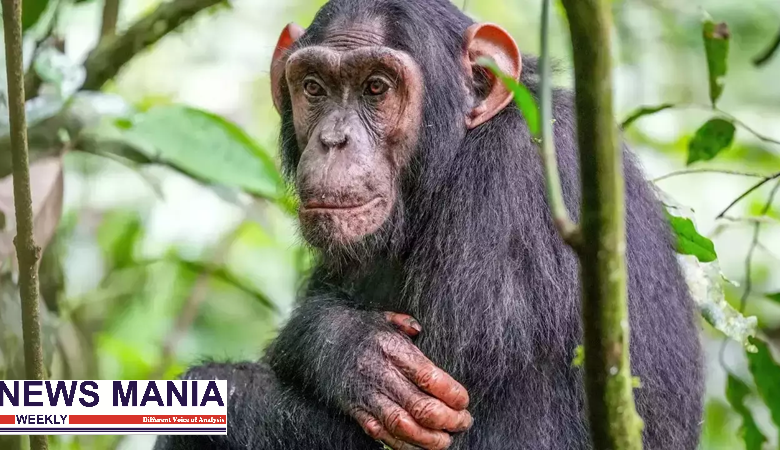Chimpanzees May Speak Like Humans, New Study Reveals

News Mania Desk/Agnibeena Ghosh/3rd August 2024
A recent study published in Scientific Reports has ignited excitement within the scientific community by suggesting that chimpanzees might possess the ability to produce speech-like sounds similar to humans. This groundbreaking research, conducted by a team of speech specialists and psychologists, reexamined historical video footage of chimpanzees and uncovered evidence that these primates may be capable of more sophisticated vocalization than previously thought.
The study revisits old footage featuring a husband-and-wife team who once attempted to teach an infant chimpanzee basic human words. Although their efforts were met with skepticism and ethical concerns at the time, the new analysis has brought their findings back into the spotlight. Researchers scrutinized hours of video footage, looking for evidence of chimpanzees producing sounds that could be interpreted as human-like speech.
One of the most striking revelations from this study was the discovery that some chimpanzees appeared to replicate human words. In the footage, researchers identified a chimpanzee uttering the word “papa” multiple times and attempting to say “cup” as well. Additionally, there was evidence of another chimpanzee producing the sound “mama.” The consistency and clarity of these utterances led researchers to describe them as “essentially word-like.”
The research team conducted an online experiment where human listeners, unaware of the recordings’ origins, interpreted the chimpanzee sounds as syllabic utterances, particularly recognizing them as “ma-ma” among other syllables. This experiment suggests that chimpanzee vocalizations could be more complex than mere grunts and hoots, hinting at the potential for basic language-like communication.
According to the study, the findings challenge the long-standing assumption that great apes lack the vocal production capabilities necessary for speech. The researchers argue that chimpanzees possess the neural building blocks essential for speech and that their vocal potential may have been previously underestimated. They call for a reevaluation of past research and a renewed focus on understanding the communicative abilities of these great apes.
The historical context of this research adds another layer of intrigue. The husband-and-wife team, who had adopted the infant chimpanzee, aimed to teach it simple words in a domestic setting. Their work was initially dismissed due to ethical concerns surrounding the separation of the chimpanzee from its natural mother. However, the new study’s analysis of their video footage suggests that their observations might have been valid, despite the ethical controversies.
The study highlights the importance of considering the potential of great apes with an open mind. It suggests that with the right nurturing environment, chimpanzees could indeed develop vocalizations resembling human speech. This research not only sheds light on the capabilities of chimpanzees but also invites the scientific community to explore further the complexities of animal communication.
In conclusion, the new findings regarding chimpanzee speech-like vocalizations could revolutionize our understanding of primate communication. As researchers continue to investigate, it may become increasingly evident that the boundaries between human and animal communication are more blurred than previously realized. This study encourages a fresh perspective on the vocal abilities of great apes and their potential to engage in more nuanced forms of communication.






